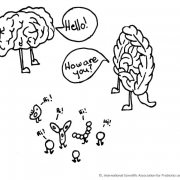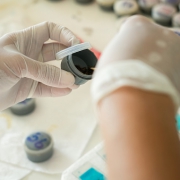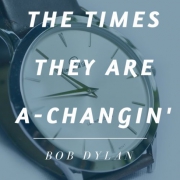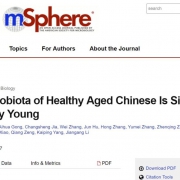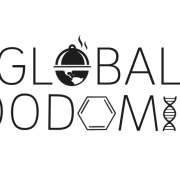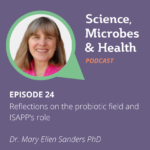Episode 23: Studying microbial ecosystems and how they support health
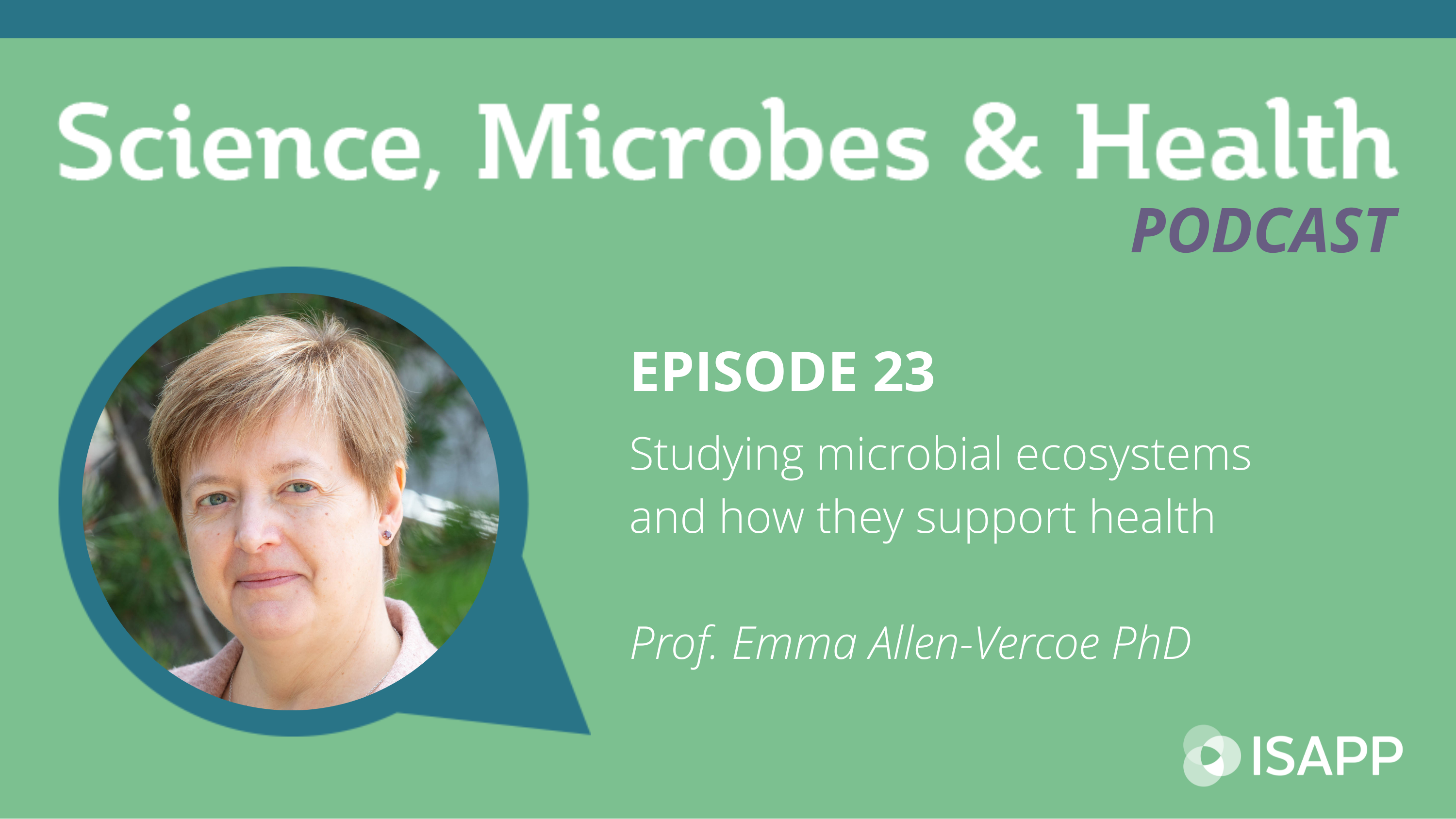
Podcast: Play in new window | Download
Subscribe: Apple Podcasts | Spotify | RSS
The Science, Microbes & Health Podcast
This podcast covers emerging topics and challenges in the science of probiotics, prebiotics, synbiotics, postbiotics and fermented foods. This is the podcast of The International Scientific Association for Probiotics and Prebiotics (ISAPP), a nonprofit scientific organization dedicated to advancing the science of these fields.
Studying microbial ecosystems and how they support health, with Prof. Emma Allen-Vercoe PhD
Episode summary:
In this episode, the ISAPP podcast hosts talk about microbial ecosystems with Prof. Emma Allen-Vercoe PhD from the University of Guelph in Canada. Prof. Allen-Vercoe describes how her lab brings together information from microbial sequencing and culturing to learn about the human gut microbiome and how it supports health. She discusses what we know about the industrialized gut microbiome and possible ways to improve health by manipulating it.
Key topics from this episode:
- What the microbiome is and the suite of tools that are typically used to study it.
- Allen-Vercoe does both sequencing and culturing in her lab as well as metabolomics, proteomics, and transcriptomics to discover on a molecular level at what the microbes are doing. They have a model system called “Robogut” to study microbial ecosystems.
- Culturing is still crucial and it’s important for trainees in microbiology to gain experience culturing organisms that are less straightforward to grow. The late Sydney Finegold inspired others to try culturing more challenging microorganisms.
- The challenge of culturing is matching the techniques in the lab to what happens in nature when it grows. Her lab builds metagenome-associated genomes to be able to predict the particular substrates that a certain microbe needs to grow.
- The “missing microbes” hypothesis is that the human microbiome has been depleted over a few generations in people from industrialized societies, and this correlates with an increase in chronic diseases.
- The Yanomami people from South America have very diverse gut microbiomes and they share certain species with other non-industrialized societies very distant from them around the world, which are not found in industrialized populations. People in industrialized societies are never exposed to these microbes, but even if they were, the microbes might not stick around because the substrates needed to sustain them (e.g. through the diet) are absent.
- The industrialized microbiome is not necessarily ‘bad’ but we do have to find out more about whether the lack of certain microbes has health effects. This is possible through the Robogut system, which can perturb microbial ecosystems and look at their behavior without affecting people’s health.
- Fecal transplants have limitations, so they’ve started to work on therapeutic ecosystems. These are “clean” or defined ecosystems that can be administered therapeutically.
Episode links:
- Paper on the Robogut system: The Robogut: A Bioreactor Model of the Human Colon for Evaluation of Gut Microbial Community Ecology and Function
- Allen-Vercoe mentioned the work of Sydney (Sid) Finegold in tackling difficult-to-culture microorganisms.
- 2009 review by Blaser and Falkow: What are the consequences of the disappearing human microbiota?
- Book by Martin Blaser: Missing Microbes – How the Overuse of Antibiotics Is Fueling Our Modern Plagues
- Paper on Yanomami gut microbiomes: Gut Microbiome Biomarkers and Functional Diversity Within an Amazonian Semi-Nomadic Hunter-Gatherer Group
- Paper from Allen-Vercoe lab: Culturing Human Gut Microbiomes in the Laboratory
About Prof. Emma Allen-Vercoe PhD:
Emma obtained her BSc (Hons) in Biochemistry from the University of London, and her PhD in Molecular Microbiology through an industrial partnership with Public Health England. Emma started her faculty career at the University of Calgary in 2005, with a Fellow-to-Faculty transition award through CAG/AstraZeneca and CIHR, to study the normal microbes of the human gut. In particular, she was among the few that focused on trying to culture these ‘unculturable’ microbes in order to better understand their biology. To do this, she developed a model gut system to emulate the conditions of the human gut and allow communities of microbes to grow together, as they do naturally. Emma moved her lab to the University of Guelph in late 2007, and has been a recipient of several Canadian Foundation for Innovation Awards that has allowed her to develop her specialist anaerobic fermentation laboratory further. This has been recently boosted by the award of a Tier 1 Canada Research Chair in Human Gut Microbiome Function and Host Interactions. In 2013, Emma co-founded NuBiyota, a research spin-off company that aims to create therapeutic ecosystems as biologic drugs, on a commercial scale. The research enterprise for this company is also based in Guelph.


